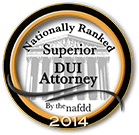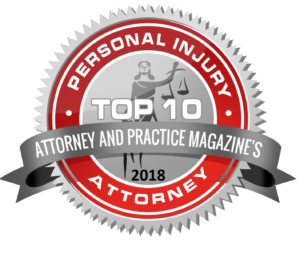Virginia’s drug laws are comprehensive and often stringent, reflecting the state’s commitment to controlling the distribution and use of controlled substances. These laws are designed to address various aspects of drug-related activities, from possession to distribution, manufacturing, and trafficking. Understanding the intricacies of these laws and the associated penalties is crucial for anyone living in or traveling through Virginia. This guide delves into the key aspects of Virginia’s drug laws, shedding light on the legal ramifications of drug-related offenses and the potential consequences one might face.

Classification of Controlled Substances
Controlled substances in Virginia are categorized into six schedules based on their potential for abuse, accepted medical use, and safety. Schedule I substances, such as heroin and LSD, are considered the most dangerous with no accepted medical use, while Schedule VI substances, which include some prescription medications, pose the least risk. The classification of a drug significantly influences the severity of penalties for related offenses. Schedule I and II drugs, due to their high potential for abuse and severe health risks, attract the most severe penalties, including long-term imprisonment and hefty fines. Understanding these classifications is essential as it forms the basis of the legal framework governing drug-related offenses in the state.
Possession of Controlled Substances
Possession of controlled substances without a valid prescription is illegal in Virginia and can result in severe penalties. Simple possession, especially of Schedule I or II drugs, is treated as a Class 5 felony, carrying potential penalties of one to ten years in prison, or up to 12 months in jail and a fine of up to $2,500. Possession of lesser-scheduled drugs may be charged as a misdemeanor with reduced penalties. However, the penalties can escalate if the quantity of the drug indicates intent to distribute. It is crucial to note that even possession of marijuana, which is decriminalized in some states, can lead to serious consequences in Virginia. The state has recently adopted a more lenient approach towards marijuana, yet penalties for possession still exist and can result in fines and other legal consequences.
Distribution and Intent to Distribute
The distribution or intent to distribute controlled substances is treated much more severely than simple possession. Factors such as the quantity of the drug, the presence of distribution paraphernalia, and the circumstances of the arrest can elevate a possession charge to one of distribution or intent to distribute. A conviction for distribution of Schedule I or II drugs can result in a prison sentence of five to 40 years and fines up to $500,000. Subsequent offenses carry even harsher penalties, including potential life imprisonment. The state aggressively prosecutes distribution offenses to curb the flow of drugs and protect public health. Understanding the severe consequences of distribution-related offenses is vital for anyone involved in drug-related activities in Virginia.
Drug Trafficking and Manufacturing
Drug trafficking and manufacturing are among the most serious drug offenses in Virginia, carrying extremely harsh penalties. Trafficking, which involves the transportation and distribution of large quantities of drugs, can result in sentences of 20 years to life imprisonment, especially for high-schedule drugs. Manufacturing controlled substances, including growing marijuana or producing synthetic drugs, also attracts severe penalties. The state employs strict measures to dismantle drug trafficking and manufacturing operations, often involving federal authorities in large-scale cases. The penalties for these offenses reflect the state’s zero-tolerance approach towards large-scale drug operations, aiming to deter and dismantle drug networks within its jurisdiction.
Prescription Drug Fraud
Prescription drug fraud is a significant issue in Virginia, encompassing activities such as forging prescriptions, doctor shopping, and illegally obtaining prescription medications. These offenses are treated seriously and can result in felony charges, depending on the substance involved and the nature of the fraud. Penalties for prescription drug fraud can include imprisonment, fines, and loss of professional licenses for healthcare providers. The state has implemented robust measures to combat prescription drug abuse, including monitoring programs and stringent regulations on prescription practices. Understanding the legal implications of prescription drug fraud is crucial for healthcare providers and individuals alike to avoid severe legal consequences.
Penalties for Drug Paraphernalia
Possession, sale, or distribution of drug paraphernalia is also prohibited in Virginia. Drug paraphernalia includes items such as pipes, bongs, and syringes that are intended for use with controlled substances. Possession of drug paraphernalia is typically charged as a misdemeanor, with penalties including fines and potential jail time. However, if paraphernalia is found in conjunction with controlled substances, the charges and penalties can escalate. The state aims to reduce drug use by targeting not only the substances themselves but also the tools used in their consumption. Understanding these laws can help individuals avoid additional charges and penalties related to drug paraphernalia.
Diversion Programs and Alternative Sentencing
Virginia offers diversion programs and alternative sentencing options for certain drug offenders, particularly first-time offenders and those with substance abuse problems. Programs such as the Virginia Drug Court aim to provide rehabilitation through supervised treatment, counseling, and education, rather than incarceration. Successful completion of these programs can lead to reduced charges or dismissal of the case. These programs reflect the state’s recognition of addiction as a public health issue and its commitment to providing offenders with opportunities for rehabilitation. Understanding the availability and eligibility criteria for these programs is essential for individuals facing drug charges who seek alternatives to traditional sentencing.
Choosing a Criminal Defense Attorney Bailing Someone Out of JailRelated Videos
Impact on Driving Privileges
Drug convictions in Virginia can have significant consequences for driving privileges. A conviction for any drug offense can result in an automatic six-month suspension of the offender’s driver’s license. This penalty is in addition to any other fines or imprisonment imposed by the court. The suspension of driving privileges can impact an individual’s ability to work, attend school, and fulfill daily responsibilities. Understanding the full scope of penalties, including those affecting driving privileges, is crucial for anyone facing drug charges in Virginia.
Federal vs. State Drug Laws
It is important to note the distinction between federal and state drug laws, as individuals charged with drug offenses in Virginia may face prosecution under either jurisdiction. Federal drug laws often carry harsher penalties, particularly for trafficking and large-scale distribution offenses. The federal government may become involved in cases that cross state lines or involve large quantities of drugs. Understanding the potential for federal prosecution and the differences in penalties between state and federal laws is crucial for anyone involved in drug-related activities. Legal representation is essential to navigate the complexities of dual jurisdiction and to mount a robust defense.
Seeking Legal Assistance
Navigating Virginia’s complex drug laws and the associated penalties requires a thorough understanding of the legal system and the nuances of each case. The penalties for drug offenses can be severe, impacting an individual’s freedom, finances, and future. Therefore, seeking professional legal assistance is crucial for anyone facing drug-related charges. An experienced attorney can provide valuable guidance, develop a strategic defense, and advocate for the best possible outcome.
Defend Your Rights Contact Us Today
If you or a loved one are facing drug-related charges in Virginia, the stakes are high, and the legal process can be daunting. At NovaLegalGroup, P.C., we understand the complexities of Virginia’s drug laws and the severe penalties that can result from a conviction. Our dedicated team of attorneys is committed to providing personalized legal representation, fighting to protect your rights, and working towards the best possible outcome for your case.
Do not navigate this challenging time alone — contact NovaLegalGroup, P.C. today for a consultation, and let us help you through this difficult period with the experience and compassion you deserve.










